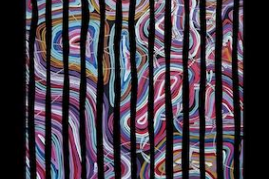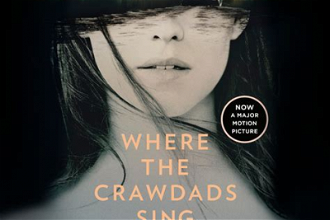The Statement; The Missing; Valentin; Valentin. Man Dancing Fr Peter Malone
The Statement
The Statement is based on a 1990s novel by Irish born Catholic author who became a Canadian citizen and an agnostic. His novels are compared with those of Graham Greene and are filled with Catholic issues.
This novel is based on actual stories of collaborators with the Nazis in the Vichy regime who executed Jews or sent thousands of them to the concentration camps. After the war, some of these men found their place in the French government, many were sheltered by the Catholic Church, especially in monasteries and by elitist groups who, especially after the Second Vatican Council, disapproved of changes and moved to extreme traditionalist positions or followed Archbishop Marcel Lefebvre into schism.
The film opens with a sequence where a young Pierre Broussard is instrumental in the killing of seven Jews. Filmed in black and white (and recurring in the memories and dreams of the older Broussard), the young actor is dubbed by Michael Caine who portrays Broussard in the 1990s, hiding his identity, finding support in several religious houses,
especially by abbots and clergy who were members of a group called the Chevaliers de Marie. The basic outline of the plot (screenplay by Ronald Harwood many of whose films focus on Nazi issues like Taking Sides and his Oscar-winning, The Pianist) is a detective thriller as a Paris judge and an army officer are assigned to find Broussard and he continually moves hiding place. Tilda Swinton is strong as the wilful judge (Catholic mother, Jewish father, now agnostic) as is Jeremy Northam as the soldier. While Broussard had received a pardon from the president, he is now sought by the authorities according to the recent law on crimes against humanity.
Michael Caine is an interesting and effective choice for Broussard, sometimes genial, sometimes cold-blooded, sometimes cringing in his dependence on confession and devotions and his image of himself as a loyal Catholic. From this vantage point, it is alarming to look at the role of many churchmen, especially from contemplative religious orders who took the side of the Nazis to combat Communism during the war and ignored the fate of the Jews.
There is a memorable supporting cast which includes Alan Bates as a French official, John Neville as the evil behind the scenes with his ruthless assistant Ciaran Hinds, Charlotte Rampling as Broussard's wife and Malcolm Sinclair as the Cardinal of Lyons who is trying to be more open about what has taken place in his diocese and in Provence.
Fine performances, interesting issues and an examination of conscience by the Church for the sins of commission and omission by some of its leaders.
The Missing
Over the decades Ron Howard has shown himself to be a director eclectic tastes in genres but a director who knows how to make well-crafted films and entertainments. His films range from Parenthood to Apollo 13 to EdTV to The Grinch and his Oscar-winning A Beautiful Mind. Now he has made a western. Most reviewers will compare it to John Ford's The Searchers and complain that it is a less effective remake or complain that it does not treat the themes of Indians and whites in the way that Ford did. This comparison is of academic interest, perhaps, but it does not do justice to The Missing.
It needs to be said at the beginning that this is often an extraordinarily beautiful film to look at, the landscapes of New Mexico, snowy ranges, bright deserts, majestic canyons and mesa tops. We are conscious of these landscapes as the context for what goes on, the West in 1885. Howard has also drawn excellent performances from his cast. Tommy Lee Jones has becomes something of a visual icon over the years, a craggy and worn face, an embodiment of hard years of experience. This suits him perfectly as Jones, an artist from New York who abandoned his family and went to live with the Indians, adopted their way of life and religious beliefs and rituals and who eventually returns to be reconciled with his daughter.
Cate Blanchett proves once again that she can enter any role and make it completely her own. She has an enormous versatility. This time she is a strong woman of the west, a survivor, a practicer of medicine, bringing up two daughters in near-isolation. When one of her daughters is abducted by a group of renegade military led by a mysterious Indian with a reputation of being a witch, she sets off with her younger daughter in pursuit, finally accepting the help of her estranged father.
This means that the film works on several levels: a western chase and rescue mission, an exploration of relationships and prejudices between whites and Indians, a story of family alienation and reconciliation. It works well at all these levels.
Valentin
Alejandro Agresti is one of Argentina's foremost filmmakers. This brief film is a piece of autobiography. Agresti has reminisced about one year of his life (1969) and shown us Buenos Aires in those days, well before the Generals and the dictatorship. A young priest gives a sermon on the death of Che Guevara and challenges his congregation in a liberation theology way and the wealthy walk out.
The character who stands in for him is called Valentin, a cross-eyed eight year old boy, whose mother has abandoned him, whose father is too busy with work and finding a new partner to attend to him, who lives with his widowed grandmother who has reached the age of aches and complaining.
Valentin wants to be an astronaut but Neil Armstrong beats him to the moon.
Valentin is very observant and gives us quite a literate and perceptive voiceover commentary on what is going on in his life, in his care for his grandmother, especially cajoling a doctor into paying a house call, in his puzzle about his absent mother (because his grandmother and father toss off the line that she was Jewish). Two people whom he does befriend are one of his father's girlfriends, a beautiful and friendly young woman called Leticia, and his neighbour Rufo, who teaches him the piano and with whom he can talk about all the issues of the world.
Agresti lived the details of Valentin's life. He also plays the father in a scene of brutal anger that Agresti said was most difficult to play because of memories that it brought back. Most audiences will like Valentin's story and not simply because he seems a 'cute' child but because of its emotion and truth.
Man Dancin'
What begins like a British gangster film of the late 1990s, early 2000s moves into a piece of Christian film-making, an effort to spread the Gospel message by means of popular entertainment, an effort in entertainment-proseletysing in a good way. The film has the courage of its convictions.
The original story came from the director, Norman Stone, and was written for the screen by Sergio Casci who wrote the screenplay for another offbeat Scottish gangster comedy-drama, American Cousins. What Stone and Casci have attempted is what might be called a variation on Denys Arcand's Jesus of Montreal, a kind of Jesus of Glasgow.
Eastenders' star, Alex Fearns, does a good job as Jimmy Kerrigan, released from a Northern Ireland jail after nine years for gun-running. He is older and wiser and has a mind to move away from the criminal gang of his youth. We get an inkling of his heroism to come when he offers to take a beating from some young thugs instead of his addicted brother. He shows how to turn the other cheek.
He does not remain long free from his past. He is called by The Chief (James Cosmo) who runs protection, prostitution and other rackets in the city as well as by the corrupt police officer ( Kenneth Cranham) who works in cahoots with The Chief. He stands his ground, tries to get his brother away from the drugs, visits his ailing mother in hospital, befriends Maria, a prostitute who wants to get out of the game and assorted other criminals, club managers and dealers.
But he also gets caught up in the activities of the parish priest, Fr Flynn, to save his parole and having to go to anger management sessions.
The parish is putting on a passion play and soon Jimmy is running it, re-writing it and Maria and her friends, his brother and an old blind singer (Tam White who wrote the songs for the film) are all involved. It is clear that there are analogies with the passion of Jesus. Jimmy is brutalised. His brother betrays him... and the audience is left to get the Gospel message, especially as the troupe take to the streets for performances after The Chief has the parish hall burned down. Norman Stone has been able to mix streetwise conventions and a tough world with Gospel basics.
Norman Stone has been responsible for quality Christian television and movies for twenty years. Years before Anthony Hopkins' screen portrayal of CS Lewis, Norman Stone had made a film of the life of the great writer and theologian, Shadowlands. Over the years, he has produced many documentaries for the BBC. For the Millennium, he produced a series for Holy Week called, evocatively, Tales from the Madhouse. Eight fourteen minute films offered monologues by men and women who were confined to an institution after their experience of Jesus. They included the Widow of Naim, Barabbas, Pilate's Wife, the Rich Young Man and Judas. They starred some of the best of British stars, Claire Bloom, Eileen Atkins, Jonathan Pryce, Joss Ackland and Blackadder's Tony Robinson as Judas.
It is risky ground, making a tough gangster film with a Christian message. It is not the kind of film the 'converted' usually go to see. If Man Dancin' can bring some Gospel meaning and credibility to the multiplex audience, it will have achieved its aim.
LONDON - 5 April 2004 - 1,653 words





















